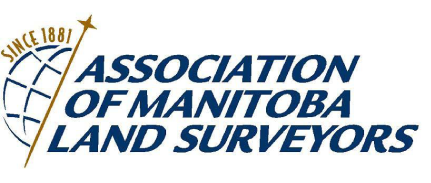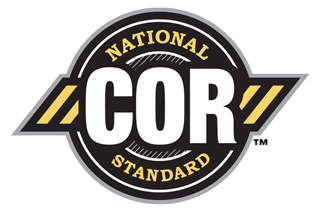Title Insurance
Title Insurance – Winnipeg & Manitoba
Consumers have for the past number of years been paying record amounts for a product called title insurance during the purchase of their homes. Title insurance does not insure titles in Manitoba as this is already insured by the provincial government. When we have explained this to some of our clients there appears to have been confusion about what the home buyer has understood during the transaction.
The promoters of the misleadingly named insurance appear to have a vested interest in the sale of the product according to the insurers own promotional materials. Frustrating to us is that the promoters are telling consumers during the home buying process that if they do not buy title insurance they will have to get a land survey done, which is not necessarily true. We do not tell homebuyers to get a survey done to avoid paying for title insurance, although this may be true.
We are in the business of doing land surveys, so we have a vested interest in this discussion. However, a land survey aids the consumer and the land tenure system in many ways and the two products are not comparable which is the either/or scenario that is being sold to the consumer. A frustration for us is that it appears that the only way to prove a claim against the insurance would be to get a land survey done, which defeats the purported main selling feature of the insurance. What has been reported to us is “get title insurance for $250 and avoid a $500 survey”. If you need a survey to prove a claim against the insurance, and if the survey negates the need for insurance, is the $250+ cost of the insurance have value? Below is an explanation of some of the facts related to the issue.
Background
The western provinces considered the effects of title insurance through the Manitoba Law Reform Commission. The scope of the inquiry was limited to six concerns,
- The public may be at risk when they deal with title insurers because they may not get independent legal advice when they enter into what is usually the largest financial transaction of their lives.
- The actual product that is being sold may have no value in Manitoba where our land title system already guarantees title.
- The public land titles system may be at risk because if you are offering insurance, there may not be a need to register at the Land Titles Office.
- Because surveys are not required, survey defects may not be identified and corrected, potentially undermining the survey fabric of our Province.
- There is no regulation of title insurers, unlike in the U.S.
- The alliance with some banks to market home closing services seems to breach the Bank Act and the Insurance Act.”
What is title insurance?
Title insurance is not insurance on your title to land. The government of Manitoba already insures every title in the province. The public has been very surprised to hear this. Government backed titles are the same across most parts of Canada. Therefore the name is misleading to say the least. Adding to the confusion, the insurance companies advertise that their insurance protects the consumer from problems to which they are already insured.
What does title insurance cost?
The home buyer/consumer is the one who pays for the cost of the insurance. The price varies from $250 and up. For residential properties in the city of Winnipeg consumers would expect to pay a flat fee of $250 to $300 and this would be a one- time payment regardless of the value of a home and there is no deductible. So a $60,000 home and a $1,000,000 home would pay about the same all things being equal. So why is it the same? It would appear the risk of a claim and the cost of a claim is similar in both instances. Why is that? No reason has been provided but the price point would indicate that the risks of a claim are low and there is a very profitable reason for this.
Where do consumers get it?
The first time a consumer usually hears about title insurance and whether they may want it, is when they are speaking to a real estate agent or a lawyer in the midst of a home closing. Generally the insurance is provided at the lawyer’s office through a licensed insurance broker, although the broker is not usually there. Further, it is difficult for a consumer to obtain policy information from the title insurance companies unless you are currently in a land transaction and are buying the product which may give little time to review the policy. Hence you usually get the information when you buy it.
So what does title insurance cover?
The two insurance companies advertise that the insurance paid for by the consumer or home buyer benefits the consumer, the lawyer, and the bank. The following is the benefits cited by the insurers along with what the writer believe are reasonable counter opinions;
Benefits to the home buyer/purchaser of the insurance as provided by First Canadian Title.
- Fast and efficient closing process – title insurance will help ensure your transaction closes on time.This is begs the question, were land transactions not closing on time prior to title insurance being introduced?
- Survey coverage – protects against unmarketability (not being able to sell your property in the future or obtain financing against your home) as a result of defects that would have been disclosed on an up-to-date survey, Real Property Report or Location Certificate.This is the largest selling point and it usually goes like this. “If you get title insurance you can forgo getting a survey done that may point out a problem with the property” $250 of insurance or $500 survey. Easy choice right. Of course when you sell the house and if a problem is discovered you can make a claim during your closing process! That won’t cost a thing! You really, really want the next guy to get title insurance and not find any problems that you bought. And by the way you will likely have to produce proof, a survey, that you have a claim. So you need a survey to prove that you can make a claim, but if you have a survey you don’t need the insurance because the seller is on the hook for any problems found. How is this good for the buyer? We haven’t figured that one out either.
- Fraud and forgery – protection against fraudulently registered mortgages against your title.Currently there are anti fraud protocols for all lawyers and banks and they have their own insurance. The government of Manitoba and most provinces have an assurance fund to insure against errors in title and fraud. Fortunately for the title insurers they can make a claim on this fund for the insurance they sell. Talk about no risk. The taxpayer pays the insurance company. A built in bail out.
- Duty to defend – the legal fees associated with resolving insured title issues will be covered.This is a good benefit. It does beg the question if the points above are true if the legal fees to resolve an issue are covered, and the crown insures titles, who made a mistake?” Do the fees of the lawyer who let you get the insurance get paid by the insurance that you bought?
- Building permit coverage – coverage for renovations completed without a permit that result in a loss.This is hard to discern what is covered but it appears the insurance would pay for the cost of a permit for work that was done by the previous owner without a permit. Ergo if you need a permit to fix work for previous work that was done without a permit, you would be covered for about the cost of a permit. This appears to be hard to prove and the only way you would find out is if you were taking a permit for current work, which may or may not be covered. Still $200 insurance for about $200 worth of coverage is a great business model.
- Zoning coverage – protection should a property not meet municipal zoning requirements.In order to find out that your property does not comply with zoning requirements, you would need to get a survey done and get a zoning memo which would cost more than the insurance. What are the odds that you are going to get a $500 survey and pay for a zoning memo to alert the municipality that you have a zoning infraction after you have already bought the place? What you don’t want is for the person buying the property to get a survey done when you are selling and getting stuck with a problem. It may be that be that all the advisors on the transaction don’t want that to happen either.
- Competing interests – protection in the case of someone claiming an interest in your land; for example, an easement for a driveway or a builder’s lien.Non registered easements are very rare and only a judge can establish them. Liens, easements and other matters are dealt with by your lawyer. This is a scare tactic. Potential easements issues would be discovered if a survey was done when you bought the property.
- Problem solving/facilitates closings – we can frequently provide coverage for known defects such as encroachments, delays in registration and zoning violations.
If you can figure this one out…?
Benefits to the lawyer from the insurance paid for by the home buyer as provided by First Canadian Title.
Claims that arise as a result of covered risks under the policy are made to FCT, thereby avoiding a claim against you which could negatively impact your Errors and Omissions insurance premiums.
So the consumer buys insurance that lowers the premiums and offers protection for the lawyer who is working on the land transaction. Is this a conflict of interest? The law society of Manitoba ensures that their members protect the public and not mislead them about services or a product. However, the insurance companies openly promote to each lawyer that there is a benefit to them.
Benefit for the real estate from the insurance paid for by the home buyer as provided by First Canadian Title.
When your clients buy their dream property, ensure it closes incident-free. Recommending your clients request title insurance through their lawyers ensures they will get the security they need and help them close the transaction on time.
For real estate agents apparently, the faster the closing the faster you get the commission. If a survey is done and the home buyer finds a problem that has to be addressed, that delays payment to the agent. Real estate agents are second only to the insurance companies as the most vocal supporters of this insurance. This is easy to understand though and fair enough. However, the consumer is buying the product and the one getting stuck with a potential problem down the road.
Benefit for the bank or lender from the insurance paid for by the home buyer as provided by First Canadian Title.
- Moves the risk associated with title from the lawyer, borrower or lending institution, to the title insurer?So the insurance company assumes a risk that is covered under a policy paid for by the homebuyer to reduce the risk to other parties? Does this imply that the parties assisting a buyer in a transaction need protection from their own acts?
- Better protects your legal interest in the property and enhances the service from a lawyer?So the policy paid for by the home buyer protects the lender and makes the legal services from the lawyer better serve the lender?
- Covers the purchaser and lender under the same policy?
No kidding, the home buyer pays for it.
- Covers not only the title-related aspects of a transaction, but also the legal services provided by a lawyer3?The policy paid for by the homebuyer covers the legal services of a lawyer to fix a problem that should have been found if due diligence was exorcised? Perhaps if the lawyer had done his/her due diligence, and the government had done their due diligence, and the lender had done their due diligence, and the surveyors did their due diligence, all of them having to be insured, and there still may be problems that were not found through apparently no fault of any of them, then the lender would be covered for legal services that was paid for by the homebuyers policy.
A thumb sketch of the dollars involved.
By estimation at least 10,000 transactions occurred last year that involved Title Insurance in the residential market, many to a single supplier. This is just the residential part. That would be 10,000 times a minimum of $200 for a minimum total of $2,000,000 every year with very few if any claims. This is a minimum. When you have to get a survey to make a claim, there is little likelihood of a client making a $400 purchase to get a $600 variance and alert the municipality of a zoning problem on their own property. This helps explain why the insurers can afford to have agents meet with real estate agents, banks and lawyers regularly. Surveyors as a group do not meet with lawyers and real estate agents and banks promoting themselves, giving them stationary, nor are they allowed to legally. Surveyors are not meeting with politicians, sponsoring events or promising to cover part of the liability of others.
From the insurance company perspective, there are many reasons for the insurance companies to be successful besides having the most amounts of money and influence. The insurance companies have invested parties. Real estate agents, real estate lawyers and banks have a vested interest in the scheme. There are lawyers and even some real estate agents that do not promote using title insurance, but they are the few. More people “selling” the product is better.
Side Effects – Good and Bad
There are side effects of the rise in the purchase of title insurance, some have been good and some have been negative. One of the main benefits has been that land transactions have been standardized to some extent and this can speed the closing process. Anything that reduces the closing time can reduce finance carry costs.
However, there are many negative effects besides the misleading aspects of the product. The main one is that the homebuyer can be stuck with a problem that the seller has created and pays to insure the seller. The buyer then has to make a claim on the insurance which will involve proof of loss which can be costly. Further the process may inadvertently alert municipalities to a zoning problem that will trigger added cost to the homebuyer that was stuck with the problem by purchasing title insurance in the first place. Therefore the insurance premium is just the beginning and the cost rises from there.
Another negative effect of title insurance in Winnipeg in particular is that municipalities have lost control of their zoning schemes. In the past, surveys on properties were regularly updated usually with every other land sale, giving the city of Winnipeg and other municipalities zoning information for free. This meant that less zoning officers would be needed to enforce the zoning bylaws. This reduces cost to the city of Winnipeg and other municipalities and thus taxes. Further because problems were discovered during the sale process the person that caused the problem would fix or pay for the fix, and thus reduce complaints to the city of Winnipeg and other municipalities later further reducing the cost.
When surveys were being done regularly the cost of surveys were the lowest in Canada. Not anymore. So in the end the city of Winnipeg and other municipalities has to spend more money to enforce its zoning and the cost to the consumer for surveys has increased. We encourage you to speak to your local authorities and read about the title insurance side of all this on their websites.
Conclusion
Title insurance by its very name is misleading to the public. The province of Manitoba already insures every title in Manitoba. This is one of the reasons that title insurance is so profitable.
The real cost to the consumer and the taxpayer is not reflected in the price of the product. Claims require proof of loss and the cost to prove a claim add to the cost of the home buyer. Further the loss of data to the city of Winnipeg and other municipalities has increased costs and shifted the burden to the taxpayer.
The insurance companies have many vested parties promoting the product as noted in this article. There seems to be no voice questioning the validity of the claims made by the title insurance companies and this in part was the reason for this article.
The other reason was the insurance companies like First Canadian Title and Title Plus, sell their insurance to home buyers by promising that if purchased the home buyer can avoid getting a survey done. This is not the case as there is not always need of a survey in the first place and in order to prove a claim, a survey will be needed in regard to zoning issues. As well the insurance does not fully protect the home buyer. Further, the insurance the home buyer purchases actually covers liabilities of the lawyer and the lender which they derive a benefit from. There is nothing wrong with this but the consumer should be told this.
Land surveyors have not promoted themselves or their services to the public, nor are we allowed to offer inducements to agents or others third parties to promote ourselves. Nothing against profit but there is a misunderstanding of what is covered and who is covered that this article hopes to make more clear using the material that in the insurance companies have themselves provided. The reader is encouraged to read the information posted by the insurance companies and come to your own conclusion





